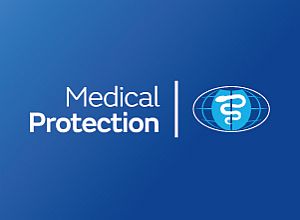The intersection of artificial intelligence (AI) and medicine provides a myriad ethical considerations that command careful examination, writes Medical Protection Student Ambassador Ikaneng Yingwane.
Yingwane writes:
As AI continues to permeate a variety of domains in healthcare, it is crucial to put these ethical challenges under a microscope to ensure principle and equitable use.
AI has the potential to improve patient care, but it also runs the risk of potentially damaging the relationship between patient and healthcare professionals.
There has been a surge in the use of AI over the past year, particularly with the advent of chatbots and advanced language models such as Chat GPT.
Free and easily accessible, these chatbots have put healthcare in the hands of patients. While internet search diagnoses have long been rife before the advent of chatbots, there is an impression within society that these chatbots are more reliable, regardless of the fact that they are simply collecting data that exists across the internet, irrespective of its legitimacy.
The upside is that chatbots can assist patients in managing their health by helping them gain an understanding of what conditions may be afflicting them and what forms of treatment could possibly work for them.
With this, patients are empowered to take a proactive role in their healthcare, which research has shown leads to improved patient engagement with healthcare professionals.(1)
However, there is a downside. The greater trust placed in chatbots might enable patients to undermine the knowledge and counsel of their doctor.
These risks will only heighten as the advanced language models develop and improve, possibly leading to patients wanting to dictate how they are cared for in the medical space or even avoid consulting altogether by relying solely on the information provided by chatbots.
In addition, chatbots are largely trained using vast amounts of data via algorithms. These algorithms can be trained on biased data sets and run the risk of amplifying controversial or unproven clinical treatments, leading to ethical and clinical dilemmas.
The path forward
Chatbots and open language models are only going to grow in use and popularity. They are here to stay.
It is therefore important that an open dialogue begins across the healthcare profession about how the benefits of open language models can be utilised, while taking action to reduce the risks also associated with this new AI technology.
This will be one of the many discussions required as AI continues to evolve and be incorporated in the healthcare system.
See more from MedicalBrief archives:
OECD: How artificial intelligence could change the future of health
Growing role for AI in everyday medical interactions
AI arrhythmia predictor has ‘potential to transform clinical decision-making’

